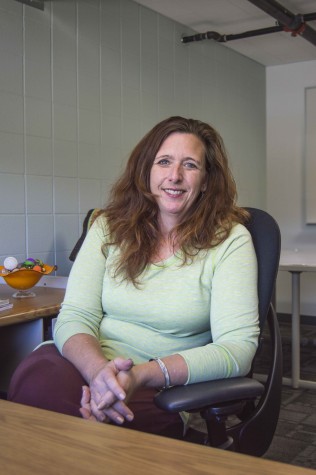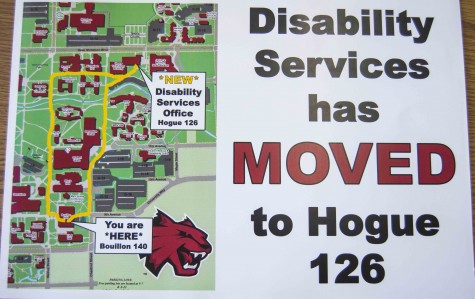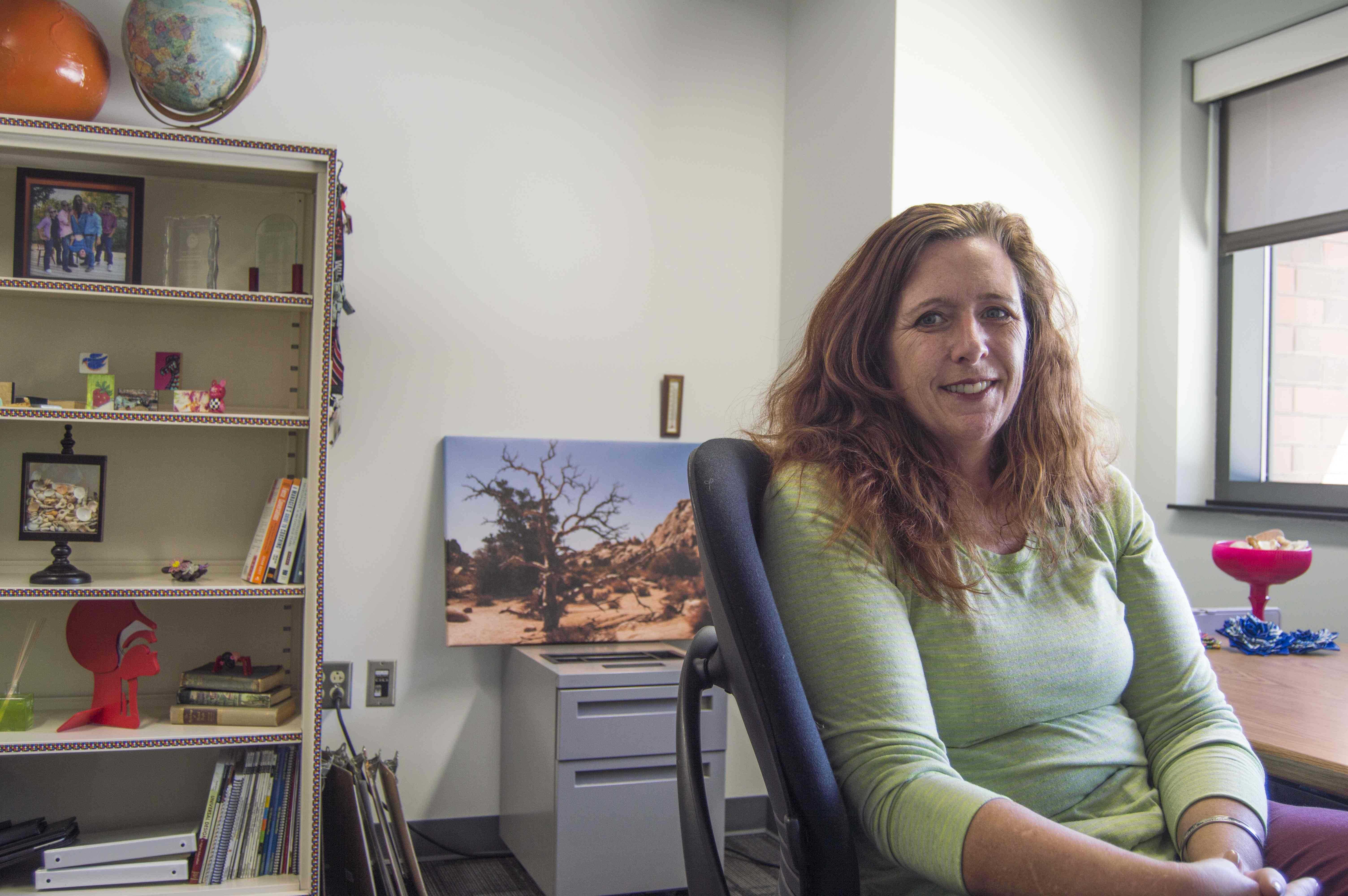CWU Disability Services to implement new program for students on the autism spectrum
Central models services after Bellevue College’s Autism Spectrum Navigators program following unprecedented success for students, set to roll out new services Fall quarter
May 11, 2015
Students living with Autism Spectrum Disorders (ASD) have a lot to look to forward to as Central overhauls Disability Services to include a brand new program available in the fall, Autism Spectrum Navigators (ASN).
ASN will be supplementing Central’s Disability Services with a specialized service offered to autistic students. The program includes a completely revamped classroom schedule specifically for students on the spectrum, new courses, and a mentor program populated by upperclassmen or graduate students.
ASN is modeled after a similar successful program at Bellevue College in Bellevue, Wash. In 2011, Sara Gardner, Bellevue College Autism Spectrum Navigators program manager, developed a pilot for what is now a nationally celebrated collegiate autism service.
Gardner, who is on the spectrum herself, said the program is unique in that it encourages students to be themselves, rather than teaching them to act “neurotypical” – a word originating from the autism community referring to people who are not on the autism spectrum.
What’s the plan?
As laid out in the ASN program overview, the model developed at Bellevue College is geared towards incoming freshmen, but any student can join. Classes are set up throughout a four-year cycle and include specialized services such as career exploration, self-advocacy and interpersonal communication.
In addition to a week-long orientation prior to Fall Quarter, regular meetings with trained peer mentors and one-on-one communication with instructors and advisors are all included in the ASN service.

Wendy Holden, Disability Services director, caught wind of the program after researching services throughout the state that could be implemented at Central. Since taking the position as director last year, Holden has been slowly working towards Central’s own specialized service, as she felt this type of support was lacking.
“It’s one of the best [programs] in the country,” Holden said. “It’s unique in that it does not charge a fee. There are programs across the country that charge thousands of dollars across the quarter. The Bellevue model is all donation.”
According to Bellevue College’s quarterly cost and fees, the cost of the 2-credit classes are $215, though the amount may change for Central students. Suggested quarterly donations are $500 to $750.
As for the cost to the school, Bellevue’s cost per student each quarter ranges from $1,000 to $1,200, depending on services. At Central, the program would all be covered through Disability Services’ funding at no extra cost to students.
The ASN model has found profound success at Bellevue, according to statistics published on Bellevue’s website. In the pilot year, students in the program group had a 100 percent retention rate across all quarters, compared to 69 percent in the control group, who were students on the spectrum that were not in the program.
Furthermore, students maintained an average 3.0 GPA in the program group, compared to a GPA that dropped from 2.52 to 2.44 and then to 2.10 in the control group.
After the pilot year, enrollment has risen steadily, beginning with 18 students in the 2011-2012 school year and rising to 70 students in the program last year.
A paradigm shift
As it exists today, Disability Services at Central has no specialized services for autistic students. The only services that are currently available to students fall under a broad umbrella.
“Things that help a lot of other students, like extended test time or technology to take notes, really aren’t the type of supports that autistic students need,” Holden said.
Bridget Bartlett, junior philosophy major, will be assisting in the program as a peer mentor for incoming students. On the autism spectrum herself, Bartlett said it’s important for students to gain that sense of community and not feel isolated.
“There’s no space for [autistic culture] on campus currently,” Bartlett said. “We are told by other people, ‘We’ll take care of this; we’ll take care of you.’ Advocating for ourselves is something that’s very important.”
At the age of 16, Bartlett was diagnosed with Asperger’s, a form of autism placed under the umbrella diagnosis of ASD, according to autism-society.org. Now in her third year at Central, Bartlett has experienced the current culture of autism around campus.
Community outreach
Devin Beach, community member and avid autism advocate, has been working with Central on expanding services on campus to students with autism ever since she graduated with a degree in communication studies in 2008.
 Since its inception at Central, Beach has been working with Disability Services on the ASN program to find ways to improve and adapt it for students at Central.
Since its inception at Central, Beach has been working with Disability Services on the ASN program to find ways to improve and adapt it for students at Central.
“I had a lot of support [in school],” Beach said. “I had some really great mentors who just really helped me through, but there was always kind of this puzzle piece missing of why I was the way I was. I kept trying to conform to the neurotypical standard of behavior, and I couldn’t do that.”
Since working with Holden on ASN, Beach has offered many suggestions on ways to improve the program and ensure it is a great fit for students here.
“I want a [campus] where autistic people can have a sense of community, be proud of their culture, be proud of who they are,” Beach said. “Where neurodiversity flourishes.”
A new leaf
One of the issues Holden noticed that was unique to Central’s campus was the sheer lack of community surrounding autistic students compared to Bellevue College’s.
According to Holden, one cause from the lack of community on campus was that students at schools like Bellevue typically live at home, so a sense of community already exists on and off campus. One of the biggest challenges, Holden said, is getting students to “come out” as being on the spectrum.
“There are a lot of students out there who haven’t registered with us,” Holden said. “Anecdotally, I know there are many, many students around campus. I can imagine it’s probably around average [for Central’s size]. The group I know about is still pretty small.”
Holden is hopeful that programs like ASN will encourage more students to feel open about being on the autism spectrum, in addition to creating a campus-wide dialogue. She said it’s more important to support students, rather than trying to find a cure.
“In this part of the country, there aren’t services even if you wanted to pay,” Holden said. “These are smart students; we just need a little bit of scaffolding to be successful. The parents I talk to are just so appreciative that their kids will have a chance.”


Sara Gardner • May 12, 2015 at 8:34 am
Autism Spectrum Navigators at Bellevue College is thrilled to partner with CWU to launch their ASN program! We are also very happy to be able to bring ASN program services to our students at no cost, other than the tuition fee that they pay for the cohort class (Career Preparation focus) they take each quarter alongside their chosen program(s) of study. It’s important to note that for most degrees, the cohort classes provide transferable college credit towards our students’ degree path as well.
Thanks, Jonathan, for writing this article and letting people know about this exciting partnership!